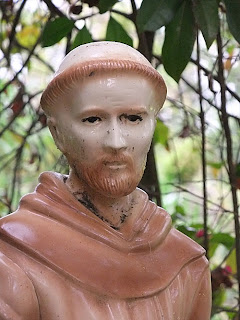What I Learned Over The High Holy Days
It's been a while since I've written. We can blame it on the insane amount of preparation and effort that goes into the High Holy Days. (And of course, then I wrote this and it sat on my iPhone for a week.)
But even though I am working during Rosh Hashanah and Yom Kippur services, so often I end up worshipping.
This year, I discovered that singing the Misheberach, the song I prayed through the night while my father was dying, brings back all the emotion of that night. Even though we sang it multiple times, I still remembered that night and choked up. [Note: I wrote that post while still home in Australia and it needed some serious editing, so I think it is more readable now.]
The other thing I learned was the meaning behind the shofar calls. Hearing the shofar (a ram's horn) is one of my favorite moments, especially the last note.
One of the rabbis shared that according to 17th century Rabbi Isaiah Horowitz,
"each group of sounds begins with a teki'ah, a whole note, proceeds to shevarim, a "broken" note, or even to teru'ah, an entirely fragmented sound. But each broken note is followed by a whole note, another teki'ah. This, he says is the message of Rosh Hashanah: "I started off whole, I became broken, even splintered into fragments, but I shall become whole again! I shall become whole again!" "**
It makes the shofar calls a metaphor for all that Yom Kippur is about: having missed the mark, we break ourselves open, shatter, in order to be made whole again, and this is done in community as part of worshipping together.
Now, if you're Christian (and further, if you've heard Bishop Jim Mathes preach), this might sound familiar. Mathes describes communion as first blessing the bread while it is still whole, breaking it, and then giving it in community and to community. He equates it with us being blessed, us being broken open and thus able to share God's love in our community, becoming part of a one larger body; whole.
Finally, if that's not enough, here's a sermon that ends in song from Yom Kippur that was just so good, "Fail Better Next Time":
** from Arthur Green's "These are the Words: A Vocabulary of Jewish Spiritual Life"



Comments
Post a Comment
Thank you for taking the time to leave a comment.